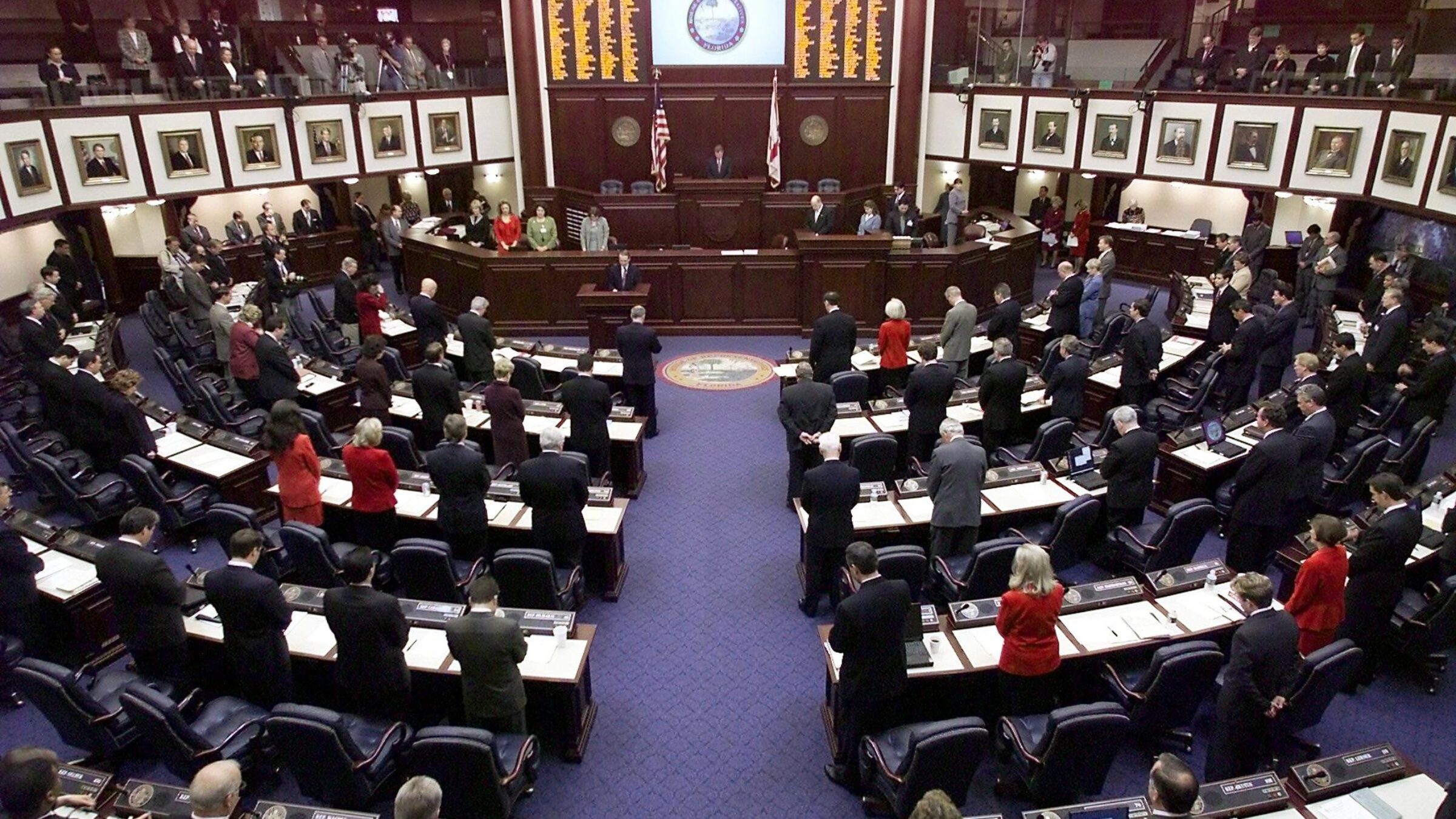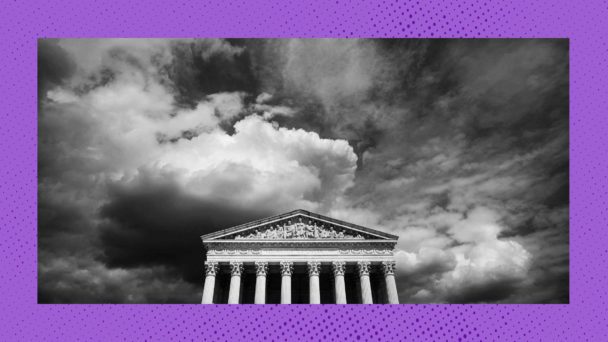Three years ago, the Supreme Court held in Bostock v. Clayton County that workplace discrimination “on the basis of sex” includes discrimination based on gender identity and sexual orientation under Title VII of the Civil Rights Act. The opinion, written by the conservative Justice Neil Gorsuch, surprised many observers, including many of Gorsuch’s conservative colleagues in lower federal courts, who have since worked diligently to undermine Bostock, limit its reach, and otherwise act as loyal foot soldiers in the right wing’s culture war.
The latest dispatch from the front lines came on New Year’s Eve, when the Eleventh Circuit Court of Appeals held that Bostock didn’t apply to school restrooms, allowing schools in Florida, Georgia, and Alabama free rein to discriminate against trans students. In that case, a Florida school district required students to use the restroom based on their sex assigned at birth, and provided a special, gender-neutral restroom for any students who didn’t want to do so. Drew Adams, a former student, filed suit, arguing that both the Fourteenth Amendment and Title IX prohibited this transphobic revival of separate-but-equal accommodations.
The district court judge, George W. Bush appointee Timothy Corrigan, took his time developing a full record of the district’s decisionmaking and found that the policy was arbitrary. First, there wasn’t a whole lot of thought put into the policy, which sprang out of what the district called “best practices” for schools on LGBTQ issues. Don’t let the name confuse you, though; the “best practices” weren’t based on any federal certification or approval from child psychologists, or anything like that. The district just developed a policy and called it “best practices,” which would be sort of like me calling a grilled cheese sandwich an “artisanal lunch.”
Under this policy, the district required students to use the bathroom consistent with the gender on their enrollment documents. But even if a student changed their birth certificate and driver’s license, which Drew did, the school district would still use enrollment documents to determine which bathroom they should use. Enforcement was inconsistent at best: After Drew’s parents told the school that he was transgender and would be using the boy’s restroom, he did for six weeks with no complaints. Only after two girls (who were never identified and didn’t testify) complained that they saw Drew going into the boy’s room did officials take Drew aside and explain that he would need to use their separate (but equal) restroom, or share the girl’s restroom with the very girls who had snitched on him. Obviously, Drew felt humiliated by the whole experience, testifying that he felt ashamed and upset every time he walked past a school bathroom.
With both strong facts and good law, Drew won at trial and, initially, on appeal, when the a three-judge panel of the Eleventh Circuit affirmed. But the school district asked for the entire Eleventh Circuit to review the case, a process known as en banc review. And the Eleventh Circuit isn’t just a majority-Republican bench—it’s a majority-Trump bench. Six of the court’s 11 current judges are Trump appointees, and President Joe Biden still hasn’t appointed a single judge to it.
Unsurprisingly, all six Trump judges—along with the chief judge, a George W. Bush appointee—sided with the district in an opinion that twisted the facts, ignored Bostock, and gave Florida a green light to make life hell for trans kids.

Eleventh Circuit Judge Barbara Lagoa shakes hands with unidentified man (Photo by Joe Raedle/Getty Images)
In an opinion written by Judge Barbara Lagoa, the Eleventh Circuit rolled out the usual rhetorical tricks to get around Bostock, arguing that that case was about employment law, not education (even though both Title VII and Title IX prohibit discrimination “on the basis of sex”). The majority also seized on Gorsuch’s claim in Bostock that the opinion “did not purport to address bathrooms, locker rooms, or anything else of the kind” to argue for its irrelevance. But Lagoa spent most of her time arguing that the bathroom policy didn’t discriminate against transgender students at all. Rather, she claimed, it discriminated based on “biological sex”: Since the bathroom policy didn’t mention transgender students specifically, it didn’t single them out for mistreatment.
This is both ridiculous, and also a lie. The district court found that the district had adopted the policy specifically to discriminate against transgender students, and that was its only effect. Moreover, the district court had found that the policy did single out transgender students; they were the students who were supposed to have access to the separate-but-equal bathrooms.
The majority evaded this reality by flipping Bostock on its head: Where Bostock held that “discrimination on the basis of … transgender status necessarily entails discrimination based on sex,” this case, the majority argued, was about whether “discrimination based on biological sex necessarily entails discrimination on the basis of transgender status.” They decided it doesn’t. And because Title IX allows schools to build separate facilities based on sex, they decided that this kind of discrimination doesn’t violate it.
The inescapable logic of the opinion—never expressed, but coursing throughout—is that transgender people are not who they say they are. Over and over, the court refers to Adams’s “biological sex” to justify its reasoning. It even mentions, apropos of nothing, that school districts have a duty to protect their students from sexual assault, as if to insinuate that Adams was a threat to other students. What the court is saying, in text and subtext, is that it’s okay to mistreat transgender people; that they must be viewed with suspicion; that they do not deserve basic dignity and humanity.
The whole opinion comes off as a cruel taunt: Throughout, the court carefully refused to refer to Drew as a man, always referring to Drew by his last name, “Adams,” even in places where the pronouns “he” or “his” would have been easier. The Supreme Court has made it clear to attorneys that it won’t accept briefs that purposely misgender trans parties, but to avoid drawing that kind of rebuke, the Trump judges decided to deliberately avoid referring to Drew as a human being with any gender at all. It’s bad enough that the deck is stacked against trans kids seeking a dignified public education. But it’s worse that, when they try to vindicate their rights in court, they get dehumanized by the same kind of bullies who try to pick on them in school.
The result was great news for officials in Florida, where lawmakers passed a high-profile law banning trans girls from girls’ sports teams in 2021. Soon after, parents of a trans girl sued, but the case was paused while the Eleventh Circuit decided Adams. Now that that court has twisted Bostock into a pretzel and shoved it in a trash can, that case is live again, and Florida, armed with the result in Adams, has moved to dismiss the parents’ complaint.
Echoing Adams, the state’s motion argues that the rules discriminate based on “biological sex,” not gender identity, and that Bostock’s reasoning therefore doesn’t apply. Florida also argues that the parents couldn’t prove that the Florida legislature passed the law with the purpose of discriminating against trans kids—even though, again, that is the only possible reason for, and only effect of, the law. And just like the majority opinion in Adams, Florida’s briefing drips with condescension for trans kids, repeatedly referring to them in terms of “biological sex.”

The Florida House, where things are about to get a lot worse (TIM SLOAN/AFP via Getty Images)
In response, the parents argue that Adams was different: There, the school district at least attempted to accommodate transgender students with a separate but equal bathroom, but here, the only alternative for their daughter is to play on boys’ teams. And the parents repeatedly point out that Florida’s new rules and their briefing both rely on stereotypes about male and female athletes instead of any actual evidence about any competitive advantage trans women might have in sports—evidence that could be fully heard and evaluated at trial, instead of presumed by Florida lawmakers who have mainlined one too many Tucker Carlson monologues.
These are good arguments. They also probably won’t work, because whatever the trial court decides, the case will go before the Eleventh Circuit on appeal. The parents’ best shot here was to draw a solid district court judge who would build a thorough record. And although the Southern District of Florida is roughly evenly split between Democratic and Republican appointees, the parents hit whatever the opposite of a jackpot is. Presiding over the case is Roy Altman, a Trump appointee and Federalist Society member who took the bench at a ripe old age of 37. Unfortunately for the parents in this case and trans kids across Florida, this draw might have ended case before it had a chance to begin.
This isn’t the only case in the Eleventh Circuit that will decide the human rights of trans kids and adults. Already, a panel of the Eleventh Circuit is deciding whether Alabama can ban gender-affirming care for minors, with criminal penalties for doctors who break the law. Parents of trans kids in Florida recently filed suit against new rules restricting doctors from providing gender-affirming care. The common thread in these cases is that the states know that the Eleventh Circuit will support whatever insane new law they dream up. Adams made clear that the Trump-appointed majority doesn’t believe that trans people deserve respect or dignity; now, each new case will build on the other as the states race each other to the bottom.




